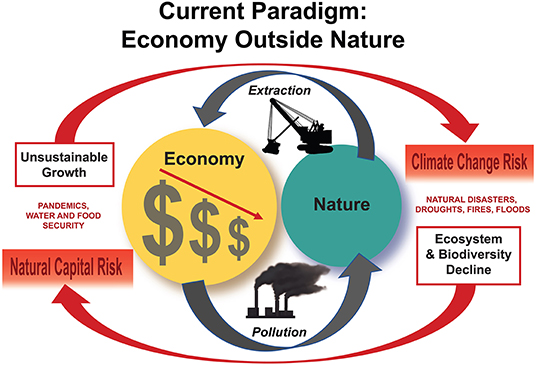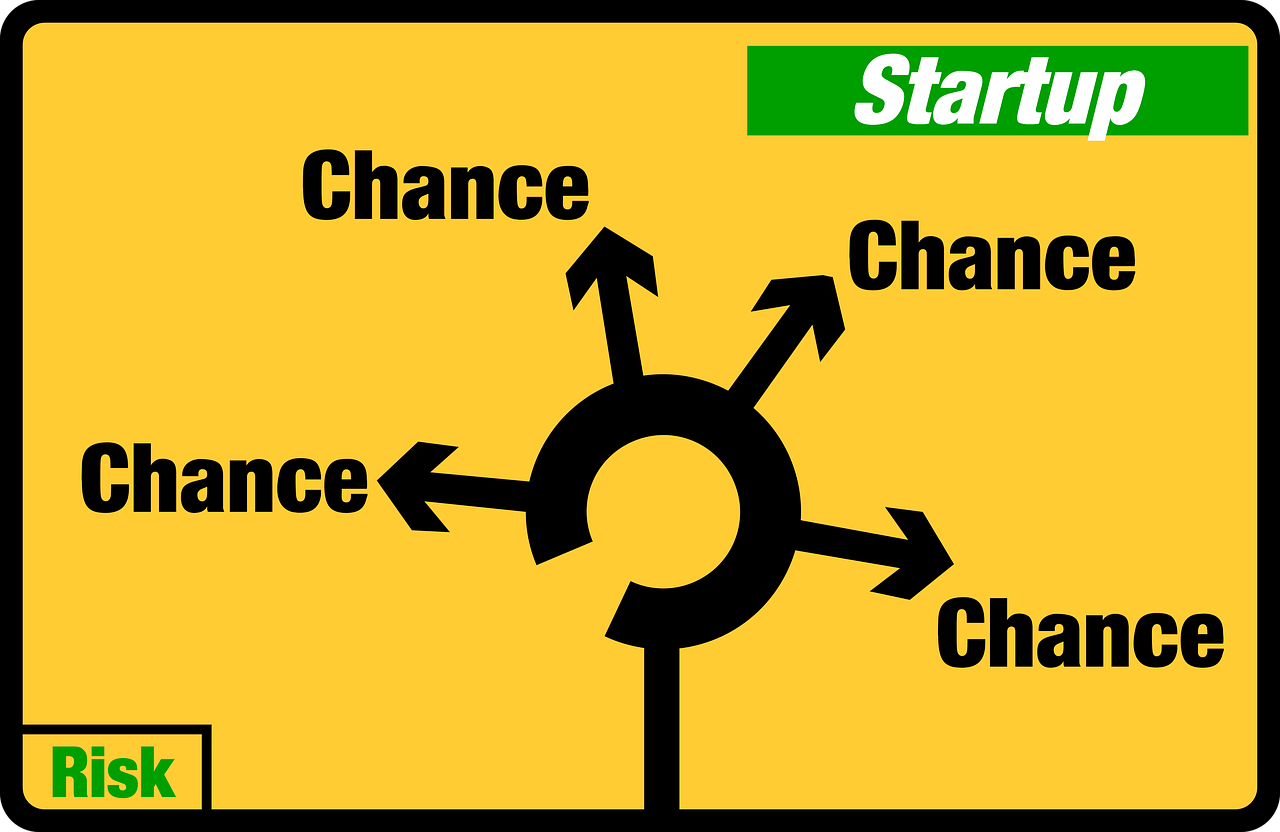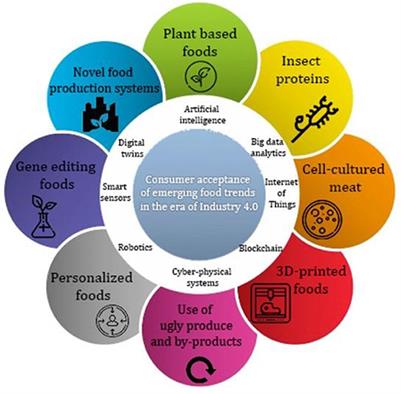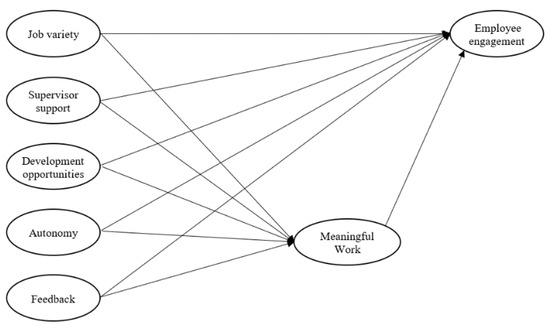Table of Contents
- The Paradigm Shift Towards Ethical Consumption
- Environmental Concerns
- Social Consciousness
- Transparency and Accountability
- Health and Well-being
- The Economic Imperative for Businesses
- Market Opportunities
- Brand Loyalty and Trust
- Risk Mitigation
- Cost Efficiency
- Strategies for Green Marketing Economics
- Product Innovation
- Transparency
- Consumer Education
- Partnerships and Alliances
- Circular Economy
- Employee Engagement
- Long-Term Planning
- The Future of Ethical Consumption
In an era defined by environmental consciousness and ethical values, sustainability has transcended being a buzzword to become a driving force behind consumer choices and marketing strategies. The intersection of sustainability and green marketing economics has ushered in a new era where ethical consumption takes center stage. This article explores the escalating significance of ethical consumption, the economic implications for businesses, and the strategies they can employ to thrive in this evolving landscape.
nullLooking for more insights? You’ll find them right here in our extended coverage: The Impact of Fashion Brand Sustainability on Consumer …
The Paradigm Shift Towards Ethical Consumption
Ethical consumption, often synonymous with sustainable or green consumption, is a paradigm shift in how consumers approach their purchasing decisions. It encompasses a broad spectrum of values, including environmental sustainability, social responsibility, and ethical sourcing. Key drivers behind this shift include:
Ethical consumption, often synonymous with sustainable or green consumption, represents a significant paradigm shift in how consumers approach their purchasing decisions. It transcends traditional notions of buying and encompasses a broad spectrum of values, including environmental sustainability, social responsibility, and ethical sourcing. This holistic approach not only considers the impact of products and services on the planet but also on people and communities.
Key drivers behind this transformative shift include:
Environmental Awareness: Growing concerns about climate change, pollution, and resource depletion have compelled consumers to seek products and services that have a reduced ecological footprint. They are more likely to support businesses that prioritize sustainable practices and minimize harm to the environment.
Social Consciousness: Ethical consumption is driven by a heightened awareness of social issues such as fair labor practices, human rights, and income inequality. Consumers are increasingly looking for brands that demonstrate a commitment to improving the well-being of workers and communities throughout their supply chains.
Transparency and Information Access: In the age of information, consumers have greater access to data about the products they buy. They can easily research a company’s ethical and sustainability practices, making it essential for businesses to be transparent and accountable for their actions.
Millennial and Gen Z Values: Younger generations, particularly Millennials and Gen Z, are driving the ethical consumption trend. They prioritize values that align with sustainability and social responsibility and are willing to support brands that share these values.
Regulatory Changes: Governments and regulatory bodies worldwide are introducing stricter environmental and ethical standards. This has a cascading effect on businesses, making it necessary for them to adapt and align with these new regulations to maintain consumer trust and compliance.
Corporate Responsibility Initiatives: Many companies are recognizing the importance of ethical consumption and have implemented corporate social responsibility (CSR) programs. These initiatives not only reflect positively on their brand image but also contribute to meaningful change.
Media and Influencer Impact: Media coverage and social media influencers play a pivotal role in shaping consumer opinions and behaviors. They can amplify ethical concerns and advocate for responsible consumption, thereby driving change on a larger scale.
As ethical consumption continues to gain momentum, businesses that prioritize sustainability, ethical practices, and social responsibility are better positioned to meet the evolving demands of conscientious consumers and contribute to a more ethical and sustainable global marketplace.
To delve further into this matter, we encourage you to check out the additional resources provided here: Sustainable Consumption Research and the Role of Marketing: A …

Environmental Concerns
Heightened awareness of climate change, pollution, and resource depletion has led consumers to seek products and services that have a lower ecological footprint. They prioritize brands that demonstrate a commitment to reducing their environmental impact.
The increasing concern about climate change, pollution, and the depletion of natural resources has ushered in a transformative era for both consumers and businesses. This shift towards sustainability and environmental responsibility is reshaping the marketplace and presents a host of opportunities for brands to align with conscientious consumers. Here’s an extended exploration of this significant trend:
Sustainability as a Competitive Advantage: Today, sustainability isn’t just a virtue; it’s a competitive advantage. Consumers actively seek out brands that adopt environmentally responsible practices. Businesses that prioritize sustainability not only appeal to eco-conscious consumers but also gain a competitive edge in an increasingly crowded marketplace.
Transparency and Accountability: Consumers demand transparency in how businesses operate and the environmental impact of their products. Brands that openly share their sustainability efforts, such as reducing carbon emissions, minimizing waste, or using eco-friendly materials, build trust and credibility with consumers.
Circular Economy Practices: The concept of a circular economy, where products are designed for reuse, recycling, and reduced waste, is gaining prominence. Businesses are exploring ways to extend product lifecycles, reduce single-use items, and promote recycling initiatives.
Eco-Friendly Innovation: Sustainability is driving innovation across industries. Businesses are investing in eco-friendly technologies and practices to create products and services with a lower environmental footprint. This includes innovations in renewable energy, sustainable packaging, and eco-conscious transportation solutions.
Consumer Education: Brands are taking on the role of educators, helping consumers understand the environmental impact of their choices. From providing information on product labels to sharing sustainability reports, businesses are empowering consumers to make informed decisions.
Green Certifications and Labels: Recognizing the importance of third-party validation, businesses pursue green certifications and labels, such as Energy Star, Fair Trade, or organic certifications. These labels provide credibility and assurance to consumers who prioritize sustainability.
Supply Chain Sustainability: Sustainability efforts extend beyond the product itself. Brands are scrutinizing their supply chains for ethical and sustainable practices. This includes responsible sourcing of raw materials, fair labor practices, and reducing the carbon footprint of transportation.
Collaborative Initiatives: Businesses are increasingly collaborating with environmental organizations, government agencies, and other stakeholders to drive sustainability goals. Such partnerships contribute to broader efforts to address global environmental challenges.
Consumer Activism: Consumers are becoming activists, using their purchasing power to influence change. Social media and online platforms amplify consumer voices, putting pressure on brands to take meaningful steps towards sustainability.
Regulatory Compliance: As governments implement stricter environmental regulations, businesses are proactively adapting to compliance requirements. This not only minimizes legal risks but also positions brands as responsible corporate citizens.
Cost Efficiency: Sustainability initiatives often lead to cost efficiencies. For example, energy-efficient practices reduce operational expenses, while waste reduction measures can cut down on disposal costs. These savings can be reinvested in further sustainability efforts.
Long-Term Brand Loyalty: Brands that demonstrate a genuine commitment to sustainability are more likely to foster long-term brand loyalty. Consumers who align with a brand’s values are not only repeat customers but also advocates who promote the brand within their social circles.
In conclusion, the paradigm shift towards sustainability represents a profound transformation in consumer expectations and business practices. Brands that embrace sustainability as a core value not only contribute to a more sustainable future but also position themselves for success in a market where conscientious consumer choices are increasingly shaping the economic landscape. As the awareness of environmental challenges continues to grow, sustainability will remain a pivotal factor in brand reputation, consumer trust, and market competitiveness.
Don’t stop here; you can continue your exploration by following this link for more details: Do consumers care about sustainability & ESG claims? | McKinsey

Social Consciousness
Consumers are increasingly concerned about the social implications of their purchases. They favor companies that embrace fair labor practices, support marginalized communities, and promote diversity and inclusivity.
The growing awareness of social implications associated with consumer choices has ushered in a new era of conscious consumerism. In this era, consumers are not just concerned about the products they buy; they are deeply invested in the values and ethics upheld by the companies they support. This shift in consumer mindset has profound implications for businesses, and it’s essential to recognize the multifaceted nature of this trend:
Ethical Sourcing and Fair Labor Practices: Consumers now expect businesses to demonstrate a commitment to ethical sourcing and fair labor practices throughout their supply chains. They want assurance that the products they purchase are not associated with exploitative labor conditions, and they value companies that actively work to improve labor standards.
Support for Marginalized Communities: Companies that actively support marginalized communities, whether through employment opportunities, partnerships, or community development initiatives, resonate with socially conscious consumers. Such initiatives showcase a commitment to creating positive social impacts beyond profit generation.
Diversity and Inclusivity: Diversity and inclusivity have become non-negotiable values for many consumers. Companies that prioritize diversity in their workforce, leadership, and marketing initiatives are seen as more authentic and reflective of the diverse world we live in. Consumers appreciate brands that embrace inclusivity not as a trend but as a fundamental value.
Transparency and Accountability: Transparency in business practices is essential. Consumers are more likely to trust companies that are open about their actions, both positive and negative. Acknowledging mistakes and committing to continuous improvement can enhance a company’s reputation and consumer trust.
Sustainability and Environmental Responsibility: Socially conscious consumers often extend their concerns to environmental issues. They favor businesses that adopt sustainable practices, reduce their carbon footprint, and prioritize eco-friendly initiatives.
Community Engagement: Companies that actively engage with their communities and contribute to social causes garner favor among consumers. Supporting local charities, participating in community events, and addressing community needs demonstrate a commitment beyond profit-driven motives.
Brand Loyalty: Building a brand based on ethical and socially responsible values can lead to enhanced customer loyalty. Consumers who align with a brand’s values are more likely to become long-term customers and advocates.
Risk Mitigation: Embracing social responsibility can also mitigate risks associated with negative public relations. Companies that proactively address social issues and demonstrate commitment to improvement are better equipped to handle potential crises.
Competitive Advantage: Differentiating from competitors through a strong commitment to social responsibility can create a competitive advantage. It can attract a growing segment of conscious consumers who actively seek out businesses that align with their values.
Consumer Influence: The collective influence of conscious consumers can drive systemic change. Consumer pressure can encourage businesses to adopt more responsible practices and influence industries to prioritize social and ethical considerations.
In summary, the rise of conscious consumerism underscores the increasing importance of aligning business values with societal values. Companies that proactively address social implications, champion fairness, diversity, and sustainability, and prioritize ethical practices are well-positioned to not only meet the expectations of socially conscious consumers but also contribute positively to society. In this evolving consumer landscape, businesses have the opportunity to be agents of social change and build enduring connections with a new generation of ethically minded consumers.
For a comprehensive look at this subject, we invite you to read more on this dedicated page: The Impact of Fashion Brand Sustainability on Consumer …

Transparency and Accountability
The digital age has empowered consumers with access to information. They demand transparency from businesses, expecting clear communication about a company’s sustainability initiatives, ethical sourcing, and supply chain practices.
nullFor additional details, consider exploring the related content available here How to SHIFT Consumer Behaviors to be More Sustainable: A …

Health and Well-being
Ethical consumption extends to health-conscious choices. Consumers are drawn to products that are healthier, use fewer harmful chemicals, and offer sustainable nutrition options.
Ethical consumption extends to health-conscious choices, reflecting a growing awareness of how our individual choices impact not only the environment but also our own well-being. In this context, consumers are increasingly drawn to products that prioritize health as a fundamental value proposition.
Health-conscious consumers are discerning in their choices. They seek products that not only taste good but also align with their personal health goals and values. This means looking for items that are not laden with harmful chemicals, artificial additives, or excessive amounts of sugar, salt, and unhealthy fats. They appreciate transparency in labeling, which allows them to make informed decisions about what they consume.
Sustainability is another vital aspect of health-conscious choices. Consumers understand that the long-term health of the planet is interconnected with their own health. This awareness drives them to choose products that are not only healthier for themselves but also for the environment. Sustainable nutrition options, such as plant-based foods, organic produce, and responsibly sourced seafood, have gained significant popularity among health-conscious consumers.
Moreover, ethical consumption in the realm of health-conscious choices extends to ethical treatment of animals. Many consumers seek out products that are cruelty-free, supporting companies that adhere to ethical standards and do not engage in animal testing. This represents a broader commitment to ethical principles, including empathy for all living creatures.
The rise of health-conscious ethical consumption also has an impact on the food industry. It encourages food producers to innovate and reformulate their products to meet the demands of this conscientious consumer base. Companies are investing in research and development to create healthier, more sustainable alternatives without compromising on taste or quality.
In summary, ethical consumption today encompasses not only considerations related to fair labor practices and environmental sustainability but also health-conscious choices. Consumers are increasingly making decisions that reflect their personal values, seeking products that promote their own health and well-being while aligning with broader ethical and environmental concerns. This shift in consumer behavior is driving positive changes in the marketplace, promoting healthier, more sustainable, and ethically produced products.
Additionally, you can find further information on this topic by visiting this page: Sustainable consumption and production

The Economic Imperative for Businesses
The rise of ethical consumption isn’t merely a shift in consumer sentiment; it carries profound economic implications for businesses:
The ascent of ethical consumption represents more than just a change in consumer sentiment; it marks a seismic shift with far-reaching economic consequences for businesses. This transformation isn’t merely a passing trend; it’s a fundamental evolution in the way companies operate and interact with their stakeholders. Let’s delve into the profound economic implications of this paradigm shift:
Consumer Loyalty and Trust: Ethical consumption is intrinsically linked to trust and loyalty. When businesses adopt ethical practices in areas such as sustainability, fair labor, or responsible sourcing, they earn the trust and loyalty of consumers. This loyalty translates into long-term customer relationships, repeat purchases, and advocacy, all of which contribute to sustained revenue streams and reduced marketing costs.
Competitive Advantage: Companies that embrace ethical consumption gain a competitive edge. They distinguish themselves in crowded markets by aligning with values that resonate with consumers. This differentiation often allows them to command premium prices for their products or services, contributing to higher profit margins.
Cost Reduction: Ethical practices often involve resource efficiency and waste reduction. For instance, sustainable supply chains can lead to lower operational costs and reduced environmental impact. Ethical consumption motivates businesses to adopt innovative practices that not only benefit the planet but also optimize resource allocation, driving cost savings.
Risk Mitigation: Ethical business practices help mitigate various risks, including reputational, legal, and operational risks. Companies that adhere to ethical standards are less likely to face public relations crises, regulatory fines, or supply chain disruptions. These risk reductions protect both brand equity and financial stability.
Access to New Markets: Ethical consumption opens doors to new markets. Consumers worldwide are increasingly prioritizing ethical considerations when making purchasing decisions. Companies that can demonstrate their commitment to ethical values have opportunities to expand their market reach globally.
Investor Appeal: Ethical businesses often attract ethical investors. Sustainability-focused investors, impact investors, and socially responsible investment funds are actively seeking companies that align with their values. Attracting ethical investors can provide access to capital and drive stock performance.
Innovation and Adaptation: Embracing ethical consumption drives innovation and adaptation. Companies are compelled to develop environmentally friendly products, implement fair labor practices, and invest in renewable energy sources. These innovations not only meet ethical standards but also position companies to thrive in a changing world where sustainability is paramount.
Regulatory Compliance: As governments worldwide impose stricter regulations related to environmental and social responsibility, businesses that are already aligned with ethical principles find it easier to comply with evolving legal requirements. This reduces compliance costs and legal risks.
Brand Resilience: Ethical brands tend to be more resilient in times of crisis. During economic downturns or unforeseen challenges, consumers often remain loyal to brands that have demonstrated a commitment to ethical values, providing a stabilizing force for businesses.
Supply Chain Optimization: Ethical consumption extends to supply chain transparency and responsibility. By scrutinizing their supply chains, businesses identify inefficiencies, vulnerabilities, and opportunities for improvement. Optimizing the supply chain enhances overall efficiency and resilience.
Employee Satisfaction: Ethical practices foster a positive workplace culture and higher employee satisfaction. Happy, engaged employees are more productive, reducing turnover and associated recruitment and training costs.
In summary, the rise of ethical consumption isn’t a fleeting trend; it’s a transformative force reshaping the economic landscape. Businesses that recognize and adapt to these changes are well-positioned for sustained growth, enhanced profitability, and long-term resilience in a world where ethical considerations are paramount for both consumers and investors. Ethical consumption is no longer an option but a fundamental driver of economic success.
Explore this link for a more extensive examination of the topic: Trends in the Fashion Industry. The Perception of Sustainability and …

Market Opportunities
Companies that align with ethical consumption trends tap into growing market opportunities. They cater to a segment of consumers who are willing to pay a premium for products and services that align with their values.
Companies that embrace ethical consumption trends not only connect with a socially conscious audience but also position themselves to thrive in a changing business landscape. Here’s an extended exploration of this idea:
Building Brand Trust: Embracing ethical consumption is a powerful way to build trust with consumers. When companies align with values such as sustainability, social responsibility, and ethical sourcing, they demonstrate a commitment to more than just profit. This commitment fosters long-lasting relationships built on trust.
Loyalty and Repeat Business: Ethical consumers often exhibit high levels of brand loyalty. When companies consistently demonstrate their commitment to ethical practices, they attract customers who are more likely to make repeat purchases and become brand advocates. This loyal customer base can serve as a stable revenue stream.
Attracting Millennial and Gen Z Audiences: Younger generations, particularly Millennials and Gen Z, prioritize ethical consumption. They are willing to invest in brands that share their values. Companies that align with these values have a competitive edge in engaging these influential consumer segments.
Market Expansion: Ethical consumption trends are not limited to specific regions. They have a global footprint. Companies that embrace ethical practices can expand into new markets by appealing to consumers who prioritize sustainability and ethical considerations.
Product Innovation: Pursuing ethical consumption often leads to innovative product development. Companies are motivated to find sustainable materials, reduce waste, and create products with a smaller environmental footprint. This innovation can result in unique offerings that attract a wider audience.
Mitigating Reputation Risks: In today’s hyper-connected world, unethical practices can quickly tarnish a company’s reputation. Ethical companies are better equipped to mitigate reputation risks, as they are less likely to face scandals or controversies related to unethical behavior.
Resilience in Economic Downturns: Ethical companies may demonstrate greater resilience during economic downturns. Consumers who prioritize ethical consumption are often willing to maintain their support for such companies even when faced with financial constraints.
Supply Chain Transparency: Ethical companies prioritize supply chain transparency. This not only ensures responsible sourcing but also mitigates risks associated with supply chain disruptions, such as those seen in recent global events.
Government and Regulatory Support: Governments and regulatory bodies are increasingly recognizing the importance of ethical consumption. Companies that align with these trends may benefit from favorable policies, incentives, or recognition for their ethical practices.
Sustainable Partnerships: Ethical companies often form partnerships with like-minded organizations, NGOs, or socially responsible initiatives. These collaborations can extend their impact and reach in promoting positive social and environmental change.
Elevated Corporate Culture: Embracing ethical consumption can enhance the corporate culture within a company. Employees are often proud to work for organizations that prioritize social and environmental responsibility, leading to higher job satisfaction and talent retention.
Measurable Impact: Ethical companies can quantify their positive impact on society and the environment. This impact measurement can be a powerful tool for marketing and building consumer trust.
In conclusion, aligning with ethical consumption trends is not only a socially responsible choice but also a savvy business strategy. Companies that prioritize sustainability, ethical sourcing, and social responsibility can tap into growing market opportunities, foster brand loyalty, and build a reputation that extends beyond profit margins. This alignment with values reflects a forward-thinking approach that positions companies for long-term success in an evolving marketplace.
Additionally, you can find further information on this topic by visiting this page: Marketing Sustainable Fashion: Trends and Future Directions

Brand Loyalty and Trust
Ethical brands often cultivate stronger customer loyalty and trust. When consumers perceive a brand as socially and environmentally responsible, they are more likely to become repeat customers and advocates.
nullFor additional details, consider exploring the related content available here Green consumers’ behavioral intention and loyalty to use mobile …

Risk Mitigation
Companies that integrate sustainability into their operations are better equipped to mitigate risks associated with regulatory changes, supply chain disruptions, and reputational damage. Ethical practices can reduce exposure to lawsuits and regulatory fines.
Companies that integrate sustainability into their operations not only contribute positively to the environment and society but also fortify themselves against a multitude of risks. Let’s expand on this idea:
“Incorporating sustainability practices into a company’s operations not only exemplifies responsible corporate citizenship but also provides a robust shield against a range of threats and challenges. Here’s how embracing sustainability can help companies mitigate risks and ensure long-term viability:
Resilience to Regulatory Changes: In an era of increasing environmental and social regulations, companies that have already adopted sustainable practices find themselves ahead of the curve. They are better prepared to adapt to new laws and regulations, reducing the risk of non-compliance and the associated penalties.
Supply Chain Resilience: Sustainability measures often involve diversifying supply chains and reducing dependencies on single-source suppliers. This diversification helps in mitigating risks related to supply chain disruptions, such as natural disasters or geopolitical conflicts. Sustainable supply chains are often more agile and adaptable, ensuring continuity even in turbulent times.
Reputation Management: Building a reputation as an environmentally and socially responsible company is invaluable. It not only attracts environmentally conscious consumers but also shields a company’s image during crises. A strong reputation can help buffer against reputational damage that may result from unforeseen events or negative public sentiment.
Reduced Litigation Exposure: Ethical and sustainable practices, such as responsible waste disposal and fair labor practices, can significantly reduce exposure to lawsuits. Companies that prioritize sustainability are less likely to face legal battles related to environmental violations, workplace discrimination, or unsafe working conditions.
Access to Capital: Sustainability-focused companies often find it easier to secure funding from socially responsible investors and lenders. They can access a broader pool of capital and often at more favorable terms, reducing financial risks associated with high-interest rates or tight credit markets.
Consumer Loyalty and Market Share: As consumers become increasingly conscious of sustainability, companies that integrate ethical practices into their business models are better positioned to retain customer loyalty. They also have a competitive edge in capturing market share, as consumers gravitate toward eco-friendly and socially responsible brands.
Long-Term Cost Savings: Sustainability often leads to long-term cost savings. Energy-efficient operations, waste reduction, and responsible sourcing can result in reduced operational expenses, making companies more financially resilient in the face of economic downturns.
Talent Attraction and Retention: Sustainable practices attract a diverse and motivated workforce. Employees are more likely to stay with a company that aligns with their values and offers a positive work environment. Lower turnover rates contribute to stability and cost savings.
In conclusion, companies that embrace sustainability not only contribute to a better world but also build a stronger shield against risks and uncertainties. They are more adaptable, have better access to resources, and enjoy greater resilience in the face of regulatory, supply chain, and reputational challenges. Sustainability is not just a moral imperative but also a smart business strategy for long-term success.”
Don’t stop here; you can continue your exploration by following this link for more details: The Impact of Fashion Brand Sustainability on Consumer …

Cost Efficiency
Sustainability initiatives can lead to cost savings in the long run. Investments in energy efficiency, waste reduction, and sustainable sourcing can lower operational expenses and enhance competitiveness.
Indeed, sustainability initiatives offer more than just ethical benefits; they are also financially prudent choices for businesses. Let’s delve further into how sustainability-driven strategies can yield substantial long-term cost savings and enhance competitiveness:
1. Energy Efficiency: Investing in energy-efficient technologies and practices is a cornerstone of sustainability. These investments might include upgrading lighting systems, optimizing HVAC systems, or adopting renewable energy sources. While the upfront costs can be significant, the long-term savings are substantial. Reduced energy consumption leads to lower utility bills, which directly impact a company’s bottom line. Additionally, energy-efficient operations often enjoy tax incentives and rebates, further enhancing cost savings.
2. Waste Reduction: Sustainable waste management practices not only benefit the environment but also minimize disposal costs. By implementing recycling programs, reducing packaging waste, and optimizing production processes, businesses can significantly cut down on waste disposal expenses. Additionally, repurposing or upcycling waste materials can generate new revenue streams.
3. Sustainable Sourcing: Ethical and sustainable sourcing practices are integral to modern supply chains. While sustainable sourcing may entail higher initial costs, it can lead to savings in various ways. For example, responsibly sourced materials often have better quality and durability, reducing the need for replacements and maintenance. Furthermore, businesses committed to sustainable sourcing can build stronger supplier relationships, potentially leading to more favorable terms and pricing agreements.
4. Risk Mitigation: Sustainable practices can act as a buffer against potential risks that could lead to financial losses. For instance, businesses that depend on finite or scarce resources may face supply chain disruptions due to resource scarcity or regulatory changes. By diversifying supply sources and embracing sustainable practices, companies can reduce vulnerability to such risks.
5. Brand Resilience: Sustainability initiatives can enhance a brand’s resilience in the face of changing consumer preferences. As more consumers prioritize ethically sourced and eco-friendly products, businesses that have already adopted sustainable practices are better positioned to cater to this growing market. This can lead to increased sales and market share, bolstering the company’s financial health.
6. Regulatory Compliance: Governments worldwide are enacting stricter environmental regulations. Failing to comply with these regulations can result in hefty fines and legal expenses. Businesses that proactively implement sustainability measures are more likely to remain compliant, avoiding costly penalties.
7. Enhanced Employee Productivity and Retention: Sustainability initiatives can also benefit the workforce. A healthier and more sustainable workplace often leads to increased employee satisfaction and productivity. Moreover, sustainability-minded companies tend to attract and retain top talent, reducing recruitment and training costs.
8. Improved Supply Chain Efficiency: Sustainable supply chain practices, such as just-in-time inventory management and streamlined logistics, can reduce operational costs. By optimizing the supply chain, businesses can minimize excess inventory, storage expenses, and transportation costs.
9. Competitive Advantage: Companies that lead the way in sustainability often enjoy a competitive advantage. They can charge premium prices for eco-friendly products and services, potentially increasing profit margins. Moreover, sustainable practices can be a key differentiator in the market, attracting conscious consumers who are willing to pay more for ethical and sustainable options.
In summary, sustainability isn’t just a moral obligation; it’s a savvy financial choice. By investing in energy efficiency, waste reduction, and sustainable sourcing, businesses can significantly lower operational expenses, mitigate risks, and enhance competitiveness. These strategies not only contribute to a healthier planet but also to a healthier bottom line, ensuring long-term financial resilience and success in an increasingly sustainability-conscious world.
To delve further into this matter, we encourage you to check out the additional resources provided here: Why Do Consumers Make Green Purchase Decisions? Insights from …

Strategies for Green Marketing Economics
To thrive in the era of ethical consumption, businesses can adopt several strategies:
To thrive in the era of ethical consumption, businesses can adopt several strategies that not only resonate with socially conscious consumers but also contribute to a more sustainable and responsible corporate image. Here are some key strategies:
Transparency and Accountability: Businesses should prioritize transparency in their operations. This means openly sharing information about sourcing, production processes, and supply chains. Accountability goes hand in hand, as it involves taking responsibility for any environmental or social impacts of the business. Transparency builds trust with consumers, and accountability demonstrates a commitment to addressing any issues that may arise.
Ethical Sourcing: Sustainable and ethical sourcing of materials and ingredients is crucial. This involves ensuring that products are made from materials that are responsibly harvested or produced, with fair labor practices throughout the supply chain. By supporting ethical sourcing, businesses not only reduce their environmental footprint but also support fair working conditions.
Environmental Responsibility: Adopting eco-friendly practices and reducing carbon footprints is a must. Businesses can invest in energy-efficient technologies, minimize waste, and implement recycling programs. Many consumers now look for eco-friendly certifications and labels, making it a competitive advantage for businesses.
Supporting Local Communities: Engaging with and giving back to local communities can be a powerful strategy. Businesses can partner with local organizations, support education initiatives, or create jobs in underserved areas. Demonstrating a commitment to community well-being can build strong relationships with consumers.
Product Innovation: Developing sustainable and ethical products can set a business apart. This might involve creating biodegradable packaging, reducing harmful chemicals in products, or offering alternatives to single-use plastics. Innovation in this area can attract eco-conscious consumers.
Social Responsibility: Beyond environmental efforts, businesses can engage in social responsibility initiatives. This could include supporting social causes, promoting diversity and inclusion within the organization, and ensuring fair wages and working conditions for employees.
Educating Consumers: Businesses can take on the role of educators by informing consumers about the impact of their choices. This can be done through marketing campaigns, informative product labels, or partnerships with non-profit organizations dedicated to ethical consumption.
Collaboration and Certification: Collaborating with ethical and sustainability-focused organizations can help businesses gain credibility. Obtaining certifications like Fair Trade, Organic, or B Corp certification can signal a commitment to ethical practices and attract conscious consumers.
Long-Term Thinking: Embracing a long-term perspective is essential. Businesses should focus on sustainable growth rather than short-term profits. This often means making investments in sustainability that may not yield immediate financial returns but pay off in the long run through brand loyalty and reduced risks.
Continuous Improvement: Ethical consumption is an evolving concept, and businesses should continuously assess and improve their strategies. Regularly reviewing and adapting to changing consumer expectations and global sustainability standards is vital for long-term success.
Incorporating these strategies into a business’s ethos and operations not only aligns with the values of ethical consumption but also positions the company for growth in an era where consumers increasingly seek to support businesses that prioritize social and environmental responsibility.
For additional details, consider exploring the related content available here Why Do Consumers Make Green Purchase Decisions? Insights from …

Product Innovation
Develop eco-friendly products and services that align with consumer values. Highlight the environmental and social benefits in marketing campaigns.
nullExplore this link for a more extensive examination of the topic: Sustainability & Consumer Behaviour 2022 | Deloitte UK

Transparency
Be transparent about sustainability efforts, including supply chain transparency, ethical sourcing, and environmental impact. Publish sustainability reports and certifications.
Being transparent about sustainability efforts is not just a choice but a responsibility that modern businesses should embrace. This transparency encompasses various aspects, including supply chain transparency, ethical sourcing, and environmental impact. Here’s why it matters and how to go beyond just publishing sustainability reports and certifications:
Consumer Trust: Transparency is the foundation of trust. When businesses openly communicate their sustainability practices, consumers are more likely to trust them. In an era where consumers are increasingly conscious about the environmental and ethical impact of their purchases, this trust can translate into loyalty and long-term customer relationships.
Supply Chain Accountability: Transparency in the supply chain is essential for ensuring that products are sourced and manufactured ethically. By providing detailed information about the origins of raw materials and the production processes, businesses can hold suppliers accountable for ethical practices, fair labor conditions, and environmental stewardship.
Environmental Responsibility: Transparent reporting of environmental impact helps businesses identify areas where they can reduce their carbon footprint and minimize waste. It’s not just about showcasing eco-friendly practices but actively working to improve them. Metrics such as greenhouse gas emissions, water usage, and waste reduction should be monitored and shared with stakeholders.
Compliance and Legal Obligations: Many regions and industries have regulations and legal obligations related to sustainability and transparency. Being forthright about your efforts not only helps you comply with these laws but also demonstrates your commitment to responsible business practices, which can have positive legal and reputational implications.
Stakeholder Engagement: Transparency encourages engagement with stakeholders beyond just customers. Investors, employees, suppliers, and the community at large are interested in a company’s sustainability efforts. Open communication invites feedback and collaboration, which can lead to innovative solutions and partnerships.
Continuous Improvement: Sustainability reports and certifications are valuable tools, but they should not be static documents. Use them as a foundation for ongoing improvement. Share your progress in achieving sustainability goals, highlight areas where you are striving to do better, and outline concrete steps you plan to take.
Education and Awareness: Transparency initiatives can also serve as educational tools. By explaining the challenges and complexities of sustainability, businesses can help consumers and stakeholders better understand the issues at hand. This can lead to more informed decision-making and support for sustainable practices.
Third-Party Verification: To enhance credibility, consider seeking third-party verification for your sustainability efforts. Certifications from recognized organizations can provide independent validation of your claims, demonstrating your commitment to high standards.
Long-Term Viability: Sustainability isn’t just a trend; it’s a path to long-term business viability. Transparent sustainability practices can help future-proof your business by ensuring that you’re well-prepared to meet evolving customer expectations and regulatory requirements.
Competitive Advantage: Finally, transparent sustainability efforts can set your business apart from competitors. When consumers have a choice between two similar products or services, they may lean toward the one with a stronger commitment to sustainability and transparency.
In conclusion, transparency in sustainability efforts is not just about publishing reports and certifications; it’s about embodying a commitment to responsible business practices, actively seeking improvement, and engaging with stakeholders to build trust and drive positive change. By embracing transparency, businesses can contribute to a more sustainable and ethical global economy while reaping the benefits of customer loyalty and long-term success.
For a comprehensive look at this subject, we invite you to read more on this dedicated page: Do consumers care about sustainability & ESG claims? | McKinsey

Consumer Education
Educate consumers about the environmental and social benefits of your products and how they contribute to positive change.
Educate consumers about the environmental and social benefits of your products and how they contribute to positive change by:
Transparent Communication: Clearly convey your sustainability efforts through product labeling, packaging, and website content. Use simple and relatable language to explain how your products make a difference.
Storytelling: Share compelling stories about the impact your products have on communities and the environment. Narratives that highlight real-life transformations and success stories resonate with consumers on a deeper level.
Visual Content: Utilize visuals like infographics, videos, and images to illustrate the positive effects of your products. Visual content is often more engaging and memorable than text alone.
Certifications and Labels: Obtain relevant certifications and eco-friendly labels for your products, such as Fair Trade, Organic, or Energy Star. These symbols provide instant recognition of your commitment to positive change.
Consumer Education Materials: Create educational materials, such as brochures or online guides, that detail the eco-friendly features of your products and provide tips on sustainable living. Distribute these materials alongside your products.
Collaborations and Partnerships: Partner with environmental organizations or social causes to demonstrate your dedication to positive change. Collaborative initiatives can amplify your message and impact.
Customer Testimonials: Showcase testimonials and reviews from satisfied customers who have experienced the environmental or social benefits of your products. Authentic feedback carries weight and builds trust.
Measurable Metrics: Quantify the positive impact your products have made, such as the number of trees planted, gallons of water saved, or lives improved. These tangible metrics reinforce your credibility.
Interactive Experiences: Engage consumers through interactive online tools or in-store experiences that allow them to explore the environmental and social aspects of your products firsthand.
Social Media Campaigns: Leverage the reach of social media to disseminate your sustainability message. Regularly share updates, facts, and success stories related to your products’ positive contributions.
Sustainability Reports: Publish annual sustainability reports detailing your company’s progress and achievements in environmental and social responsibility. Make these reports accessible to consumers on your website.
Educational Workshops: Host workshops or webinars to educate consumers about sustainable living and the role your products play in promoting a more eco-conscious and socially responsible lifestyle.
Recycling and Disposal Information: Provide clear instructions on how to recycle or dispose of your products responsibly. Encourage consumers to reduce waste and embrace recycling practices.
Feedback Channels: Create channels for consumers to share their ideas and suggestions for further improving the environmental and social impact of your products. Actively listen and respond to their input.
Long-Term Commitment: Continuously update consumers on your ongoing commitment to sustainability. Demonstrate that your dedication to positive change is not just a short-term marketing strategy but a core value of your brand.
By educating consumers about the tangible benefits of your products and how they contribute to a better world, you can inspire conscious purchasing decisions and foster a sense of partnership with your audience in creating positive change.
For additional details, consider exploring the related content available here The Impact of Fashion Brand Sustainability on Consumer …

Partnerships and Alliances
Collaborate with organizations and NGOs that share your sustainability goals. Such partnerships can amplify your impact and reach.
Collaborating with organizations and non-governmental organizations (NGOs) that share your sustainability goals represents a powerful strategy to enhance your sustainability initiatives. Here’s an extended perspective on the benefits and ways to maximize the impact of such partnerships:
Amplified Resources: Partnering with like-minded organizations and NGOs significantly increases the pool of resources available for sustainability projects. This includes financial support, expertise, and access to valuable networks.
Expertise Exchange: Collaborative efforts foster the exchange of knowledge and expertise. Organizations can learn from each other’s experiences, adopting best practices and innovative solutions to address sustainability challenges.
Shared Vision: Partnerships are most effective when there is a shared vision for sustainability. Working with organizations that align closely with your goals ensures that efforts are synergistic and directed toward common objectives.
Broader Reach: Partnering expands your reach. NGOs often have extensive community and stakeholder networks, allowing your sustainability initiatives to reach a wider audience and make a more significant impact.
Enhanced Credibility: Associations with respected organizations and NGOs can enhance your brand’s credibility and reputation in the eyes of customers, stakeholders, and the public.
Collaborative Projects: Joint projects can be more ambitious and impactful. Collaborators can tackle larger-scale sustainability initiatives that may be beyond the capacity of individual organizations.
Advocacy and Influence: Partnerships provide a collective voice for advocating sustainability policies and practices. Collaborative efforts can influence regulatory changes and industry standards.
Risk Sharing: Sustainability initiatives often involve risks. By partnering, organizations can share the burden of risks and liabilities, making it easier to navigate potential challenges.
Innovation Acceleration: Collaborative environments encourage innovation. Organizations can brainstorm and experiment with new sustainability solutions, accelerating the development of eco-friendly technologies and practices.
Market Expansion: Partnerships can open doors to new markets and customer segments. Leveraging the networks of collaborating organizations can lead to increased sales and market penetration.
Measurable Impact: Collaborative initiatives often result in measurable impacts. By pooling data and resources, organizations can track and report on sustainability achievements more comprehensively.
Long-Term Commitment: Sustainability partnerships can extend beyond short-term projects. Establishing enduring relationships with organizations and NGOs reinforces your commitment to sustainability over the long haul.
Education and Awareness: Collaborations provide opportunities to educate stakeholders and the public about sustainability issues. Joint awareness campaigns and educational initiatives can promote behavior change and responsible consumption.
Flexibility and Adaptability: Sustainability challenges evolve. Collaborative partnerships are flexible and adaptable, allowing organizations to respond to changing environmental and social circumstances effectively.
Global Reach: NGOs often have a global presence. Partnering with international NGOs can extend your sustainability impact to a global scale, addressing pressing global challenges.
In summary, collaboration with organizations and NGOs that share sustainability goals is a strategic imperative for businesses committed to making a meaningful difference in environmental and social sustainability. These partnerships not only amplify resources and reach but also foster innovation, credibility, and long-term impact. By working together toward a common vision, organizations can drive positive change and contribute to a more sustainable and responsible future.
Don’t stop here; you can continue your exploration by following this link for more details: 5 things to know about Starbucks new environmental sustainability …

Circular Economy
Embrace circular economy principles, such as recycling, upcycling, and waste reduction, to minimize environmental impact.
nullYou can also read more about this here: Sustainable consumption and production

Employee Engagement
Foster a culture of sustainability within your organization. Engaged employees can drive sustainability initiatives from within.
Fostering a culture of sustainability within your organization is not just a trend; it’s a strategic imperative. By cultivating a workplace where sustainability is deeply ingrained in the company’s values and operations, you can unleash the potential of engaged employees to become powerful advocates and drivers of sustainability initiatives from within.
Here’s how you can extend this idea:
Inclusive Sustainability Vision: Make sustainability a part of your organization’s overarching vision and mission. Ensure that every employee understands how their role contributes to this vision. When people see the purpose and impact of their work, they are more likely to feel engaged and motivated to drive sustainability.
Education and Training: Provide ongoing education and training programs on sustainability topics. Equip employees with the knowledge and tools they need to make sustainable choices both in their professional roles and personal lives. Encourage them to share their learnings and ideas with colleagues.
Employee Involvement: Actively involve employees in sustainability initiatives. Create cross-functional teams or committees focused on sustainability projects and innovations. When employees have a direct hand in shaping sustainability efforts, they feel a sense of ownership and pride in their accomplishments.
Recognition and Rewards: Recognize and reward employees who champion sustainability. Acknowledge their efforts and contributions through internal awards, incentives, or other recognition programs. Celebrating sustainability champions can inspire others to follow suit.
Transparency and Communication: Keep employees informed about the progress of sustainability initiatives. Share data and results regularly, showcasing the positive impact of their collective actions. Open and transparent communication builds trust and encourages continued engagement.
Leading by Example: Leadership plays a critical role in shaping the culture of an organization. Ensure that leadership not only endorses sustainability but also actively practices it. When employees see their leaders making sustainable choices, they are more likely to do the same.
Sustainability Feedback Loop: Establish channels for employees to provide feedback and ideas related to sustainability. Encourage them to share their suggestions for improvements and innovations. This not only generates fresh perspectives but also fosters a sense of inclusivity in the sustainability journey.
Community Engagement: Extend sustainability efforts beyond the workplace. Encourage employees to participate in community service or sustainability-related volunteer activities. This reinforces the idea that sustainability is a shared responsibility, both inside and outside the organization.
Measurable Goals and Progress: Set clear, measurable sustainability goals and track progress over time. Share these metrics with employees and celebrate milestones achieved. This creates a sense of purpose and direction in your sustainability journey.
Long-Term Commitment: Sustainability is not a one-time endeavor but an ongoing commitment. Continuously revisit and refine your sustainability initiatives in response to changing circumstances and evolving best practices.
In conclusion, a culture of sustainability within your organization is a powerful catalyst for positive change. Engaged employees are not only more motivated and satisfied in their roles, but they also become passionate advocates for sustainability, driving meaningful progress that benefits the organization, its employees, and the broader community.
Don’t stop here; you can continue your exploration by following this link for more details: Why Do Consumers Make Green Purchase Decisions? Insights from …

Long-Term Planning
Incorporate sustainability into long-term business planning and consider it a core element of your brand identity.
Incorporating sustainability into long-term business planning and making it an integral part of your brand identity is not just a strategic move; it’s a commitment that can yield numerous benefits for your business and the environment. Here’s an extended exploration of the importance and strategies for embedding sustainability into your business DNA:
Strategic Sustainability Goals: Start by setting clear, measurable sustainability goals that align with your business values and objectives. These goals could encompass reducing carbon emissions, minimizing waste, sourcing sustainable materials, or supporting ethical labor practices. Having specific targets provides direction and accountability.
Eco-Friendly Product Development: Integrate sustainability into your product development process. Consider how you can design products that are eco-friendly, durable, and easy to recycle or repurpose. Innovations such as sustainable packaging or energy-efficient components can differentiate your offerings.
Supply Chain Sustainability: Extend your sustainability efforts to your supply chain. Collaborate with suppliers who share your commitment to ethical and sustainable practices. Audit your supply chain for environmental and social responsibility, ensuring transparency and accountability.
Circular Economy Initiatives: Embrace the principles of a circular economy, where resources are used efficiently and products are designed for reuse, remanufacturing, or recycling. Explore ways to extend product lifecycles and reduce waste through initiatives like take-back programs.
Renewable Energy Adoption: Transition to renewable energy sources to power your operations. Investing in solar, wind, or other renewable energy options not only reduces your carbon footprint but also offers long-term cost savings.
Employee Engagement: Foster a culture of sustainability within your organization. Educate and engage employees in sustainable practices. Encourage them to contribute ideas and initiatives that promote sustainability in the workplace.
Transparency and Reporting: Communicate your sustainability efforts transparently. Publish sustainability reports that detail your progress towards goals and your impact on environmental and social aspects. Transparent reporting builds trust with stakeholders.
Customer Education: Educate your customers about the sustainable aspects of your products or services. Highlight how choosing your brand supports eco-conscious practices. Transparent labeling and clear messaging can help consumers make informed choices.
Partnerships and Collaboration: Collaborate with organizations, NGOs, or industry associations that promote sustainability. Partnerships can amplify your impact and provide access to valuable expertise and resources.
Regulatory Compliance: Stay informed about evolving environmental regulations and ensure compliance. Proactive compliance not only minimizes risks but also demonstrates your commitment to responsible business practices.
Market Positioning: Position sustainability as a core element of your brand identity. Communicate your sustainability values through marketing campaigns, branding, and public relations efforts. Highlighting your commitment to sustainability can attract eco-conscious consumers.
Continuous Improvement: Sustainability is an ongoing journey. Regularly assess and reassess your sustainability initiatives, seeking opportunities for improvement. Encourage feedback from employees, customers, and partners to identify areas of growth.
Industry Leadership: As you make sustainability integral to your brand, aim to become a leader in your industry in terms of environmental and social responsibility. Demonstrating industry leadership can inspire others to follow suit.
Risk Mitigation: Sustainable business practices can help mitigate risks associated with climate change, resource scarcity, and changing consumer preferences. Businesses that proactively address these risks are better positioned for long-term resilience.
Community Engagement: Engage with the communities in which you operate. Support local sustainability initiatives, contribute to environmental conservation efforts, and be an active and responsible corporate citizen.
Incorporating sustainability into your long-term business strategy and brand identity not only aligns with global efforts to address pressing environmental and social challenges but also positions your business for future success. By making sustainability a core element of your business DNA, you can attract eco-conscious consumers, drive innovation, reduce operational costs, and contribute to a more sustainable and prosperous future for both your business and the planet.
For additional details, consider exploring the related content available here Going Green: Benefits of Sustainability in Business | Maryville Online

The Future of Ethical Consumption
Ethical consumption is not a passing trend; it represents a fundamental shift in consumer behavior. As environmental and social concerns continue to shape the choices consumers make, businesses that prioritize sustainability and green marketing economics will be better positioned for long-term success. In this evolving landscape, ethical consumption isn’t just a matter of ethics; it’s a wise economic choice that leads to stronger brands, increased market share, and a more sustainable future for all.
Ethical consumption has evolved from a niche trend into a cornerstone of modern consumer behavior, reshaping the marketplace in profound ways. This transformation is not a fleeting phenomenon but rather a profound and enduring shift that carries far-reaching implications for businesses and society as a whole. Here’s an extended exploration of how ethical consumption is rewriting the rules of commerce and why it’s a strategic imperative for long-term success:
Consumer Empowerment: Ethical consumption represents a significant shift in the balance of power between businesses and consumers. With easy access to information, consumers can scrutinize a company’s practices and demand accountability. Businesses that align with ethical values empower consumers to make choices that reflect their beliefs and convictions.
Brand Reputation and Trust: Ethical business practices are intricately linked to brand reputation and trust. Consumers are more likely to support brands with a proven commitment to sustainability, ethical sourcing, and social responsibility. Positive reputations not only attract loyal customers but also act as a shield during times of crisis.
Market Demand and Innovation: Ethical consumption is driving market demand for sustainable and socially responsible products and services. This demand, in turn, fuels innovation. Businesses are compelled to develop eco-friendly alternatives, adopt circular economy practices, and find creative solutions to address pressing societal challenges.
Regulatory and Legal Implications: As ethical consumption gains momentum, regulatory bodies are increasingly focusing on sustainability and ethical standards. Businesses that proactively embrace ethical practices are better prepared to navigate evolving regulatory landscapes, avoiding potential legal hurdles and reputational damage.
Global Supply Chain Resilience: Ethical consumption has highlighted the vulnerabilities of complex global supply chains. Businesses that prioritize sustainability are actively seeking more resilient and localized supply chains, reducing risks associated with disruptions, and enhancing their agility in responding to market changes.
Employee Engagement: Ethical business practices are not limited to external stakeholders; they also resonate within organizations. Employees are more likely to be engaged and committed to companies that demonstrate a strong sense of social and environmental responsibility. This engagement, in turn, enhances productivity and innovation.
Competitive Advantage: Companies that lead in ethical consumption gain a competitive edge. They can charge premium prices for ethically sourced or sustainable products, attracting discerning consumers and often outperforming competitors who lag behind in ethical practices.
Collaborative Partnerships: Ethical consumption encourages collaborative partnerships among businesses, NGOs, and governments. These partnerships can lead to collective initiatives that address global challenges, such as climate change, poverty alleviation, and fair labor practices.
Long-Term Resilience: Ethical consumption fosters long-term business resilience. By adopting sustainable practices and minimizing negative societal impacts, businesses mitigate risks, build enduring customer relationships, and position themselves for sustained growth even in turbulent times.
Societal Impact: Beyond economic considerations, ethical consumption contributes to a more equitable and sustainable society. It promotes social justice, environmental stewardship, and the well-being of future generations.
In conclusion, ethical consumption is far more than a passing fad; it’s a transformative force reshaping the very foundations of business. Companies that recognize this paradigm shift and proactively integrate ethical principles into their operations are not only better positioned for long-term success but also play a crucial role in creating a more equitable, sustainable, and socially responsible future for all. In this evolving landscape, ethical consumption isn’t just a matter of ethics; it’s a strategic imperative that leads to stronger brands, increased market share, and a brighter and more sustainable future for businesses and society alike.
For additional details, consider exploring the related content available here How to SHIFT Consumer Behaviors to be More Sustainable: A …

More links
You can also read more about this here: Do consumers care about sustainability & ESG claims? | McKinsey
